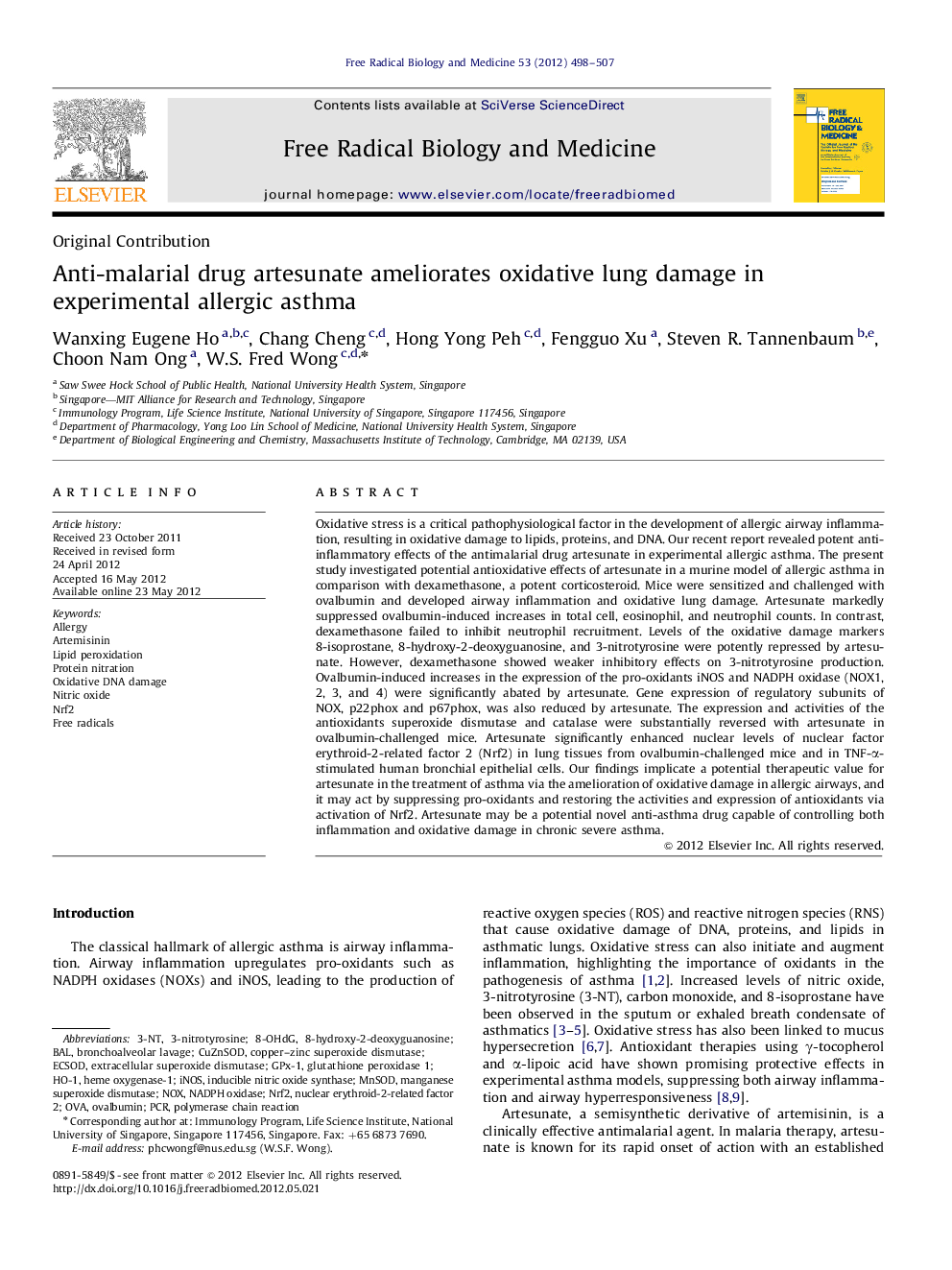| Article ID | Journal | Published Year | Pages | File Type |
|---|---|---|---|---|
| 1908676 | Free Radical Biology and Medicine | 2012 | 10 Pages |
Oxidative stress is a critical pathophysiological factor in the development of allergic airway inflammation, resulting in oxidative damage to lipids, proteins, and DNA. Our recent report revealed potent anti-inflammatory effects of the antimalarial drug artesunate in experimental allergic asthma. The present study investigated potential antioxidative effects of artesunate in a murine model of allergic asthma in comparison with dexamethasone, a potent corticosteroid. Mice were sensitized and challenged with ovalbumin and developed airway inflammation and oxidative lung damage. Artesunate markedly suppressed ovalbumin-induced increases in total cell, eosinophil, and neutrophil counts. In contrast, dexamethasone failed to inhibit neutrophil recruitment. Levels of the oxidative damage markers 8-isoprostane, 8-hydroxy-2-deoxyguanosine, and 3-nitrotyrosine were potently repressed by artesunate. However, dexamethasone showed weaker inhibitory effects on 3-nitrotyrosine production. Ovalbumin-induced increases in the expression of the pro-oxidants iNOS and NADPH oxidase (NOX1, 2, 3, and 4) were significantly abated by artesunate. Gene expression of regulatory subunits of NOX, p22phox and p67phox, was also reduced by artesunate. The expression and activities of the antioxidants superoxide dismutase and catalase were substantially reversed with artesunate in ovalbumin-challenged mice. Artesunate significantly enhanced nuclear levels of nuclear factor erythroid-2-related factor 2 (Nrf2) in lung tissues from ovalbumin-challenged mice and in TNF-α-stimulated human bronchial epithelial cells. Our findings implicate a potential therapeutic value for artesunate in the treatment of asthma via the amelioration of oxidative damage in allergic airways, and it may act by suppressing pro-oxidants and restoring the activities and expression of antioxidants via activation of Nrf2. Artesunate may be a potential novel anti-asthma drug capable of controlling both inflammation and oxidative damage in chronic severe asthma.
► Artesunate has anti-inflammatory effects comparable to those of corticosteroid. ► Artesunate suppressed oxidative damage to lung proteins, DNA, and lipids. ► Artesunate repressed pro-oxidant but restored antioxidant expression. ► These beneficial effects may be mediated via the promotion of nuclear Nrf2 levels. ► Artesunate may possess therapeutic values for the treatment of asthma.
